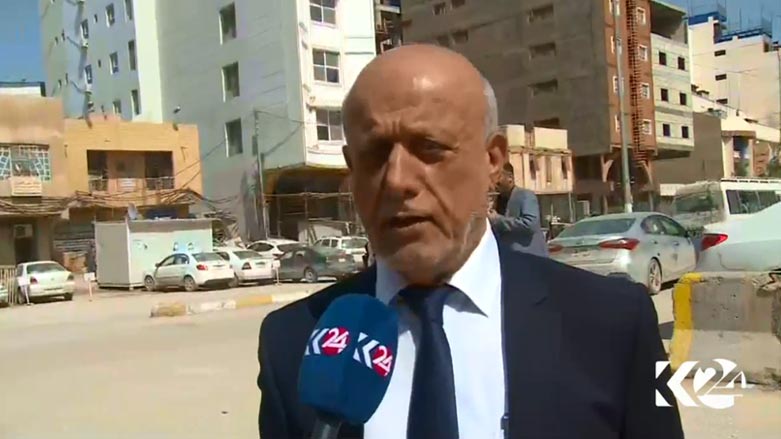Kurdish delegation visits Najaf clerics for help resolving Baghdad disputes

ERBIL, Kurdistan Region (Kurdistan 24) – A Kurdish delegation visiting Najaf urged senior Shia clerics on Friday to intercede on their behalf with Baghdad leadership, in the interest of resolving current disputes between Iraq's federal government and the Kurdistan Region.
"The delegation discussed the flight ban imposed by Baghdad on the airports of Kurdistan with them," as well as several other issues, said Kurdistan Islamic Union spokesperson Hadi Ali, in an interview with Kurdistan 24."
Ali stressed that the members of the delegation, who arrived in the holy city on Wednesday, were representing various political parties in the Kurdistan region, and not the Kurdistan Regional Government (KRG).
So far, clerics they have held meetings with Ali Mousavi, head of the Shia Endowment, and Ayatollah Ali Bashir Najafi, among others. It is not clear whether or not they will meet with Ayatollah Ali al-Sistani, the cleric most influential with Iraq's Shia politicians and community.
A spokesman for the Patriotic Union of Kurdistan (PUK), Saadi Bira, told reporters earlier that, during discussions with Ali Bashir Najafi, the cleric expressed "understanding" of the differences and problems between the two sides, and promised to work to preserve their faltering relationship.
After the Kurdistan Region's September 2017 independence referendum, Baghdad enacted collective punitive measures against the Kurdistan Region, including an international flight ban on its airports. It also carried out a military operation in which it gained control the oil-rich province of Kirkuk and other disputed territories which had been under the protection of the Peshmerga since 2014.
The embargo has dramatically affected the semi-autonomous region’s economy, forcing many foreign and local companies to close their offices and operations, causing hundreds to lose their jobs.
Over the past few months, many in the Kurdistan Region have held public protests against the sanctions of the Iraqi government, including recent demonstrations by wounded Peshmerga and disabled residents in front of the UN compound in Erbil, in which they call upon the international community to pressure Baghdad to lift the sanctions.
